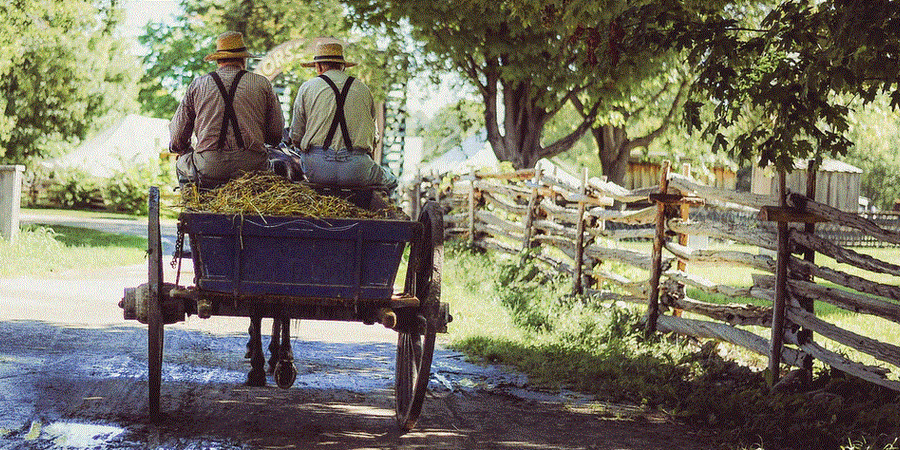Philadelphia, PA - During the early settlement of Pennsylvania, the Amish culture and history were a large part of what made the state a unique place. The Amish were a religious group with a distinct culture with laws and traditions. They were separated from the rest of the world and were involved in cottage industries. These industries were essential for the state's early settlement and played a role in the history of Pennsylvania.
Early settlements in Pennsylvania
During the first half of the 1800s, Amish settlements spread to other Midwestern states and eventually to Ohio and Pennsylvania. Pennsylvania is the oldest Amish settlement in the United States. The Pennsylvania Amish are a conservative Christian faith that stresses separation from the modern world. They base their regulations on a literal interpretation of the Bible. They also insulate themselves from the mass media and other cultural influences.
Throughout history, the Amish have struggled to adapt to modernity in both a literal and cultural sense. They have incorporated elements of modern technology and other advances into their daily lives, but their agrarian roots have primarily held firm. They value patience, humility, and yielding to others. In addition, they believe God is the ultimate healer. They do not believe modern medicine contradicts the Bible but rely on local health care providers.
Cottage industries
Traditionally, the Pennsylvania Amish have been farmers. But with shrinking farmland and a declining population, the Amish have had to rethink their dependence on farming. The result is that a growing number of cottage industries have emerged to provide employment and a source of supplemental income. The cottage industries are also creating opportunities for people living in rural areas.
The Amish operate many home-based businesses. These include craft shops, hardware stores, and bakeries. Many also have repair shops, health food stores, and flower shops.
Traditionally, the Lancaster, PA, Amish have emphasized farming and homemaking skills. Today, the majority of Amish families work in small shops. They sell everything from quilts to gazebos. These shops are a vital part of the Amish community.
Clothing restrictions
Choosing what to wear is an important decision in Amish culture. It reflects your identity as an Amish person and your commitment to your community.
There are two basic types of Amish attire. The Plain or Old Order Amish wears a long, full dress with capes over the shoulders. The Old Order Amish also wears an apron and straight pins to fasten clothing. The Old Order Amish also wears a black hat and black shoes.
Plain Amish dress is the most obvious outward manifestation of the Amish religion. The Amish dress is not patterned and is usually black cotton. It is fastened with straight pins and snaps.
The Old Order Amish also wears shawls. Some Amish groups also ban the use of zippers and buttons.
Separation from the world
Despite their 300-year history, the Pennsylvania Amish culture remains relatively closed to the world. However, they have adopted a dual strategy of resistance.
First, the Amish resist assimilation into the mainstream culture of the country. This is achieved through a series of cultural defenses. These defenses are designed to fortify Amish identity. The two defenses primarily focus on limiting contact with outsiders and social interaction with non-Amish. The Amish also restrict the use of technology and reject television and computers.
Second, the Amish have developed a strict shunning policy. In the Amish settlements, individuals who are not members of the Amish church are referred to as "English."
Third, the Amish maintain a distinct ethnic subculture. This is reflected in their clothing, which is often white. White garments are worn to symbolize a final passage into eternal life. They also often feature traditional buttons and fasteners.
Politics
Unlike most Amish communities, Pennsylvania Amish do not belong to a single governing body. Instead, they are self-governing and have their own rules. In the past, Pennsylvania Amish resisted cultural influences and kept out of the political arena. However, they have become more involved in the business in recent years.
The Amish have become increasingly involved in selling farm products and carpentry. In the past, they were strictly involved in farming. They have become involved in carpentry and business enterprises in the past few decades. This has caused a significant disruption in their society.
They are also profoundly religious. Pennsylvania hosts one of the largest Amish settlements in the United States. In addition, Lancaster County is home to many politically active Amish.


